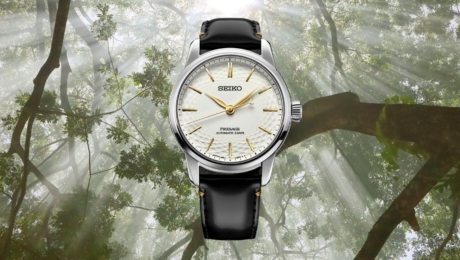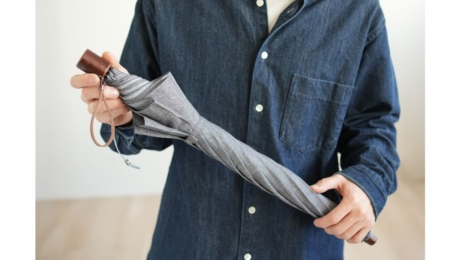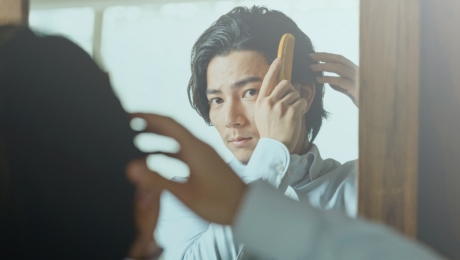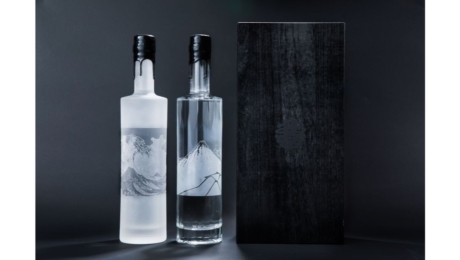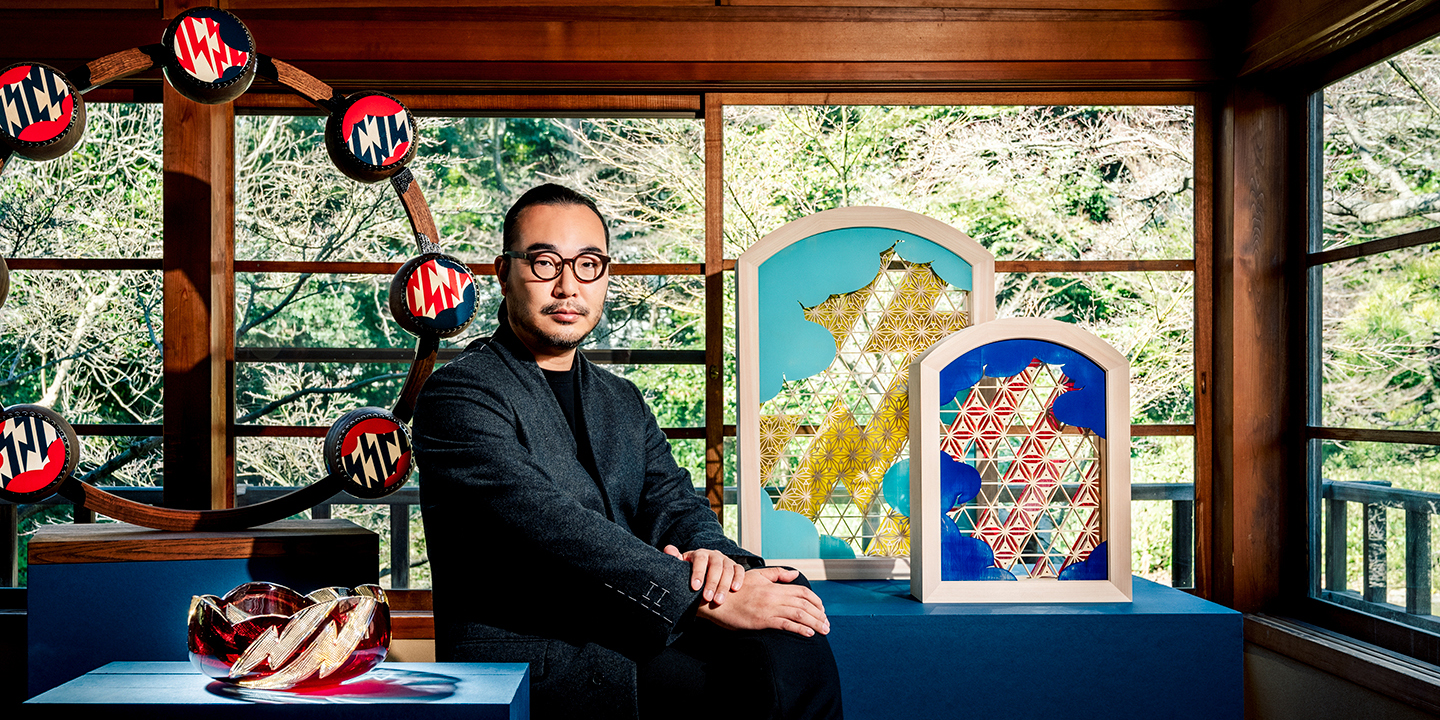
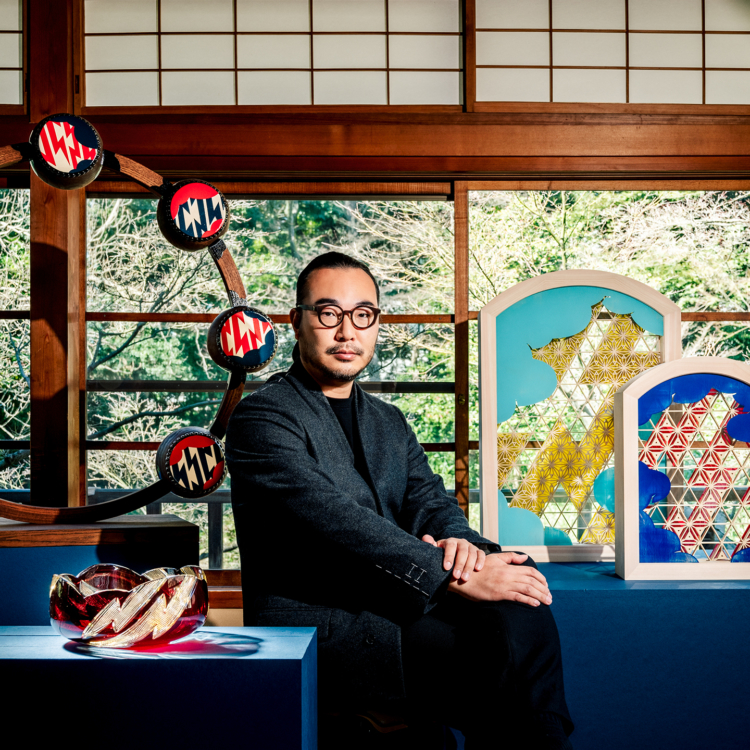
【EDO TOKYO RETHINK】Collaboration works of traditional crafts and contemporary art will be open to the public at Important Cultural Property Kyu-Iwasaki-tei Gardens.
2024.01.30
LIFE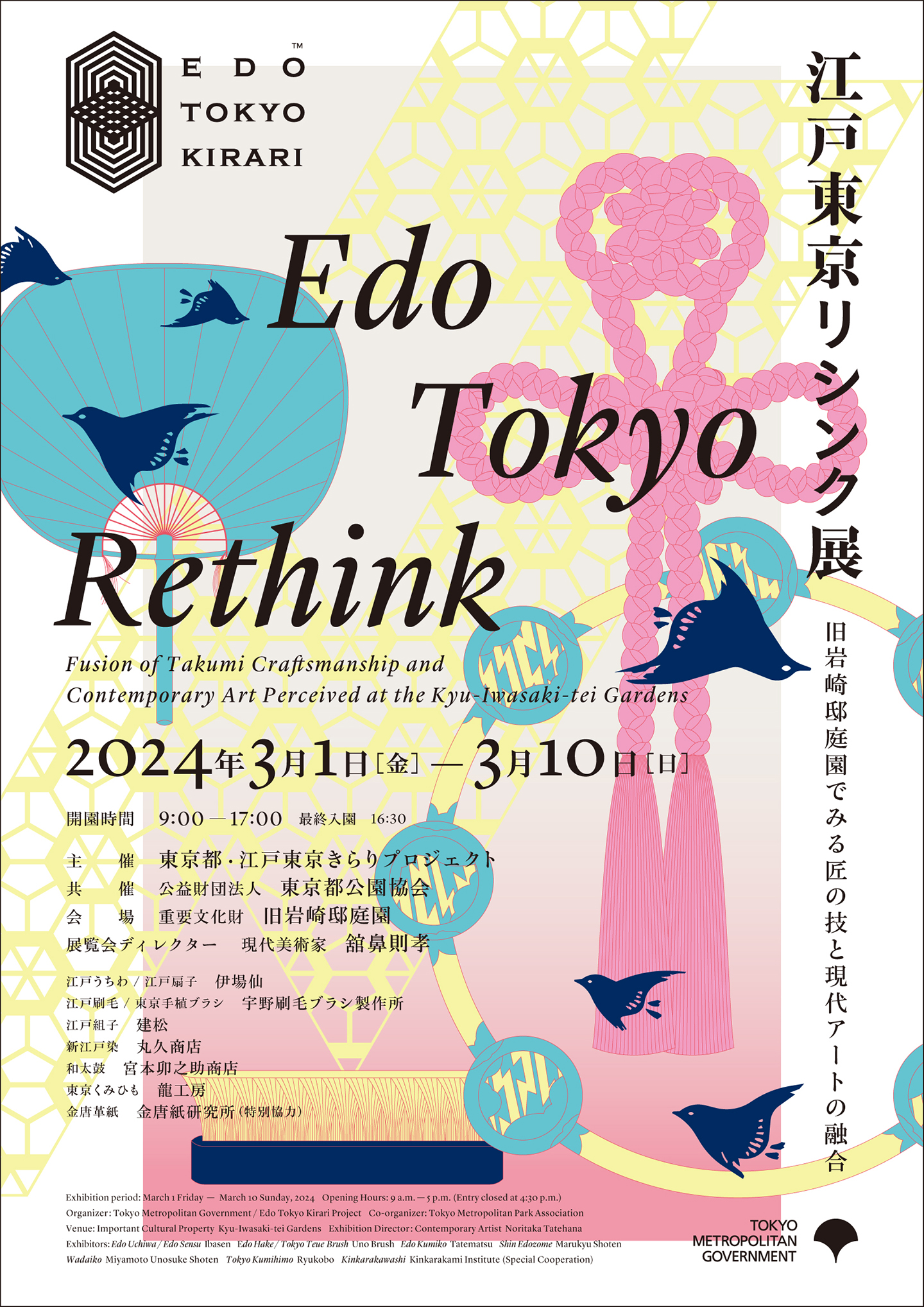
About the Edo Tokyo Rethink Exhibition
The Edo Tokyo Kirari Project’s mission is to use new perspectives to refine techniques and products rooted in the traditions of Edo-Tokyo, and to present them with the world. The fruits of the project are being shared with the general public through the Edo Tokyo Rethink exhibition (held in the Kyu-Iwasaki-tei Gardens), led by exhibition director Noritaka Tatehana, a contemporary artist active in both the Japanese and overseas modern art worlds. At the exhibition, Tatehana has welcomed Tokyo’s traditional craftsmen as collaborators, presenting the value and appeal of historical traditional industries in a new way. The starting point of this process was “rethinking,” Tatehana’s creative approach that seeks to answer the questions “how should we look back on Japan’s ancient traditional culture and how should we embody them for the future?” The first of these exhibitions was held three years ago, and each year it has shown new artworks and valuable historical materials shared by traditional craftsmen. Some rooms in the Western-style building in the Kyu-Iwasaki-tei gardens are decorated with “kinkarakawashi” (gold embossed wallpaper). Such craft-like interiors are also an attraction of this exhibition, resonating with the works on display.
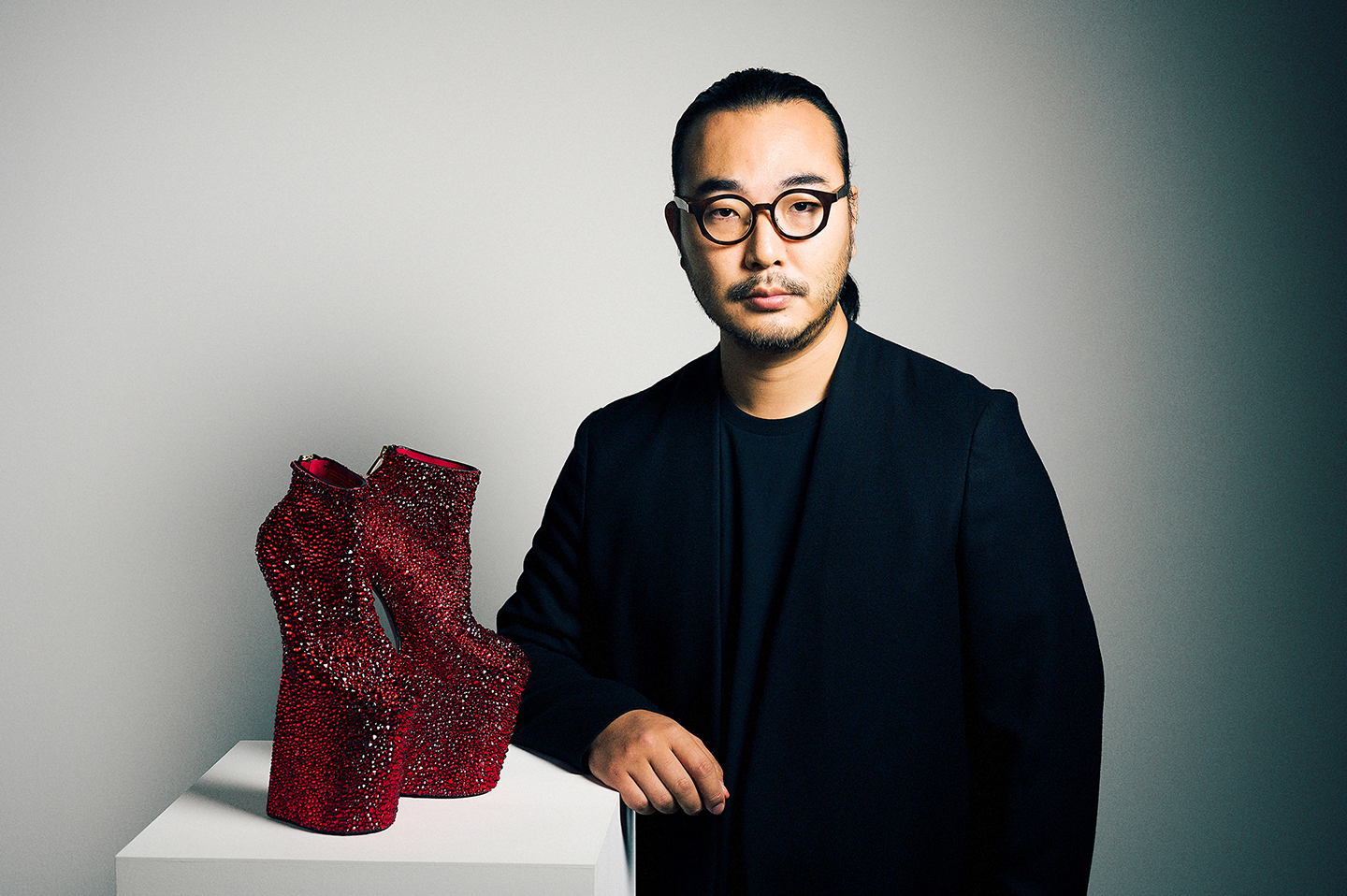
Exhibition Director
Contemporary Artist Noritaka Tatehana
Noritaka Tatehana was born in Tokyo in 1985. He graduated from the Tokyo University of the Arts Department of Crafts where he majored in Textile Arts. His graduation work, “Heel-less Shoes,” were inspired by the tall wooden geta sandals of high-ranking courtesans and are famed for being worn by Lady Gaga. He now works as a contemporary artist, taking part in exhibitions in Japan and abroad, and is dedicated to creating original works with traditional craftspeople. His pieces are part of the permanent collections of New York’s Metropolitan Museum of Art and London’s Victoria and Albert Museum.
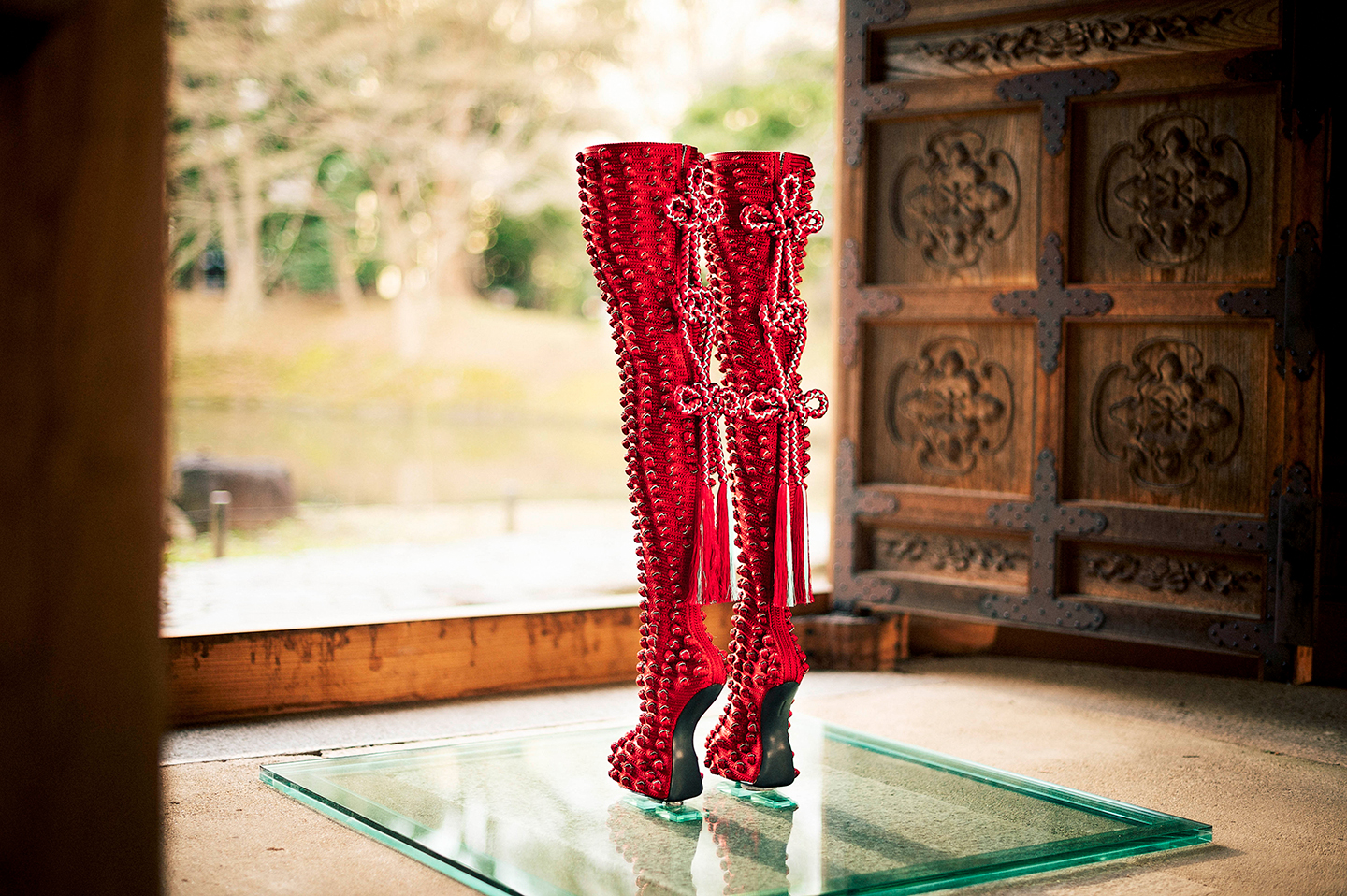
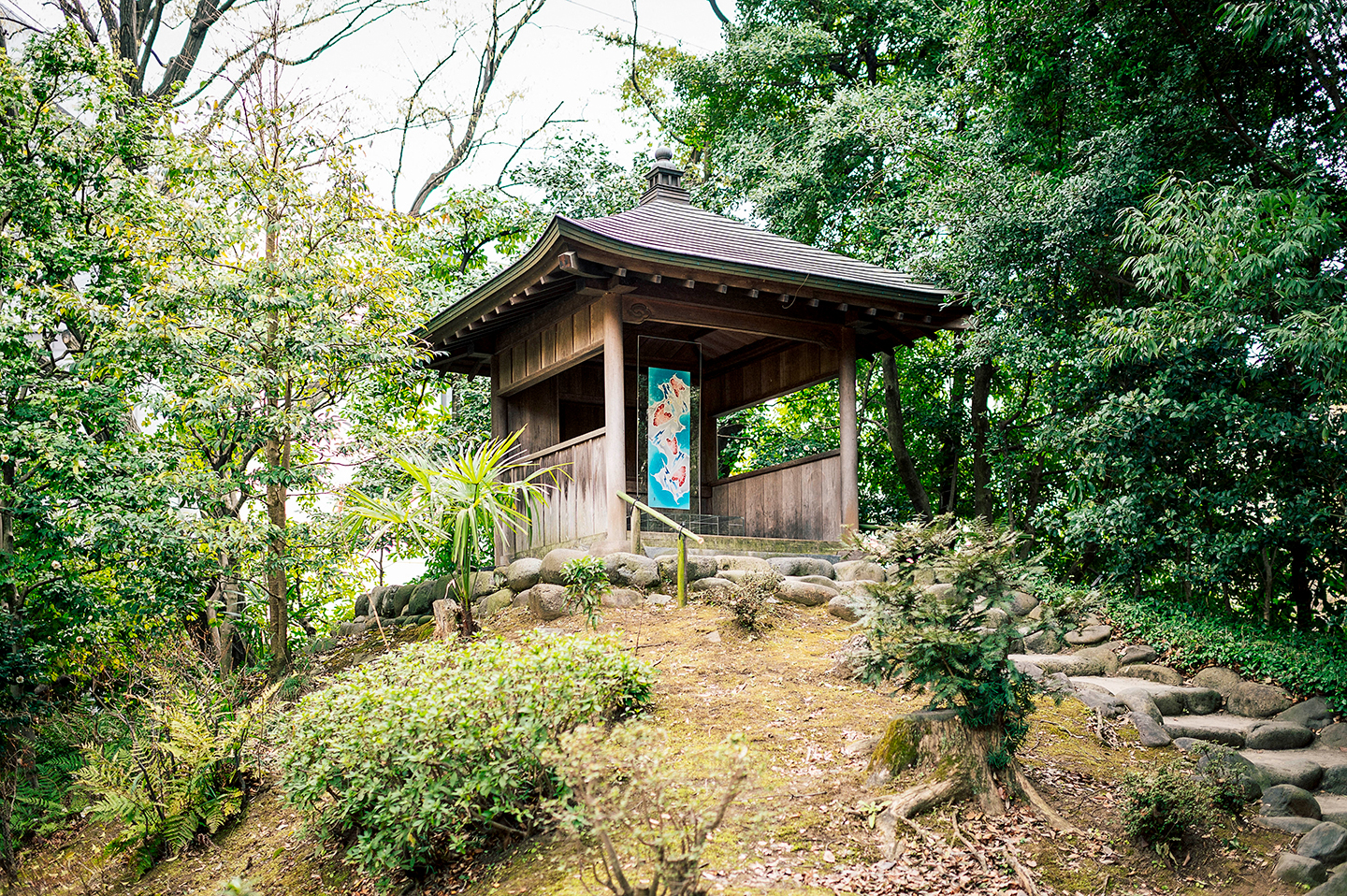
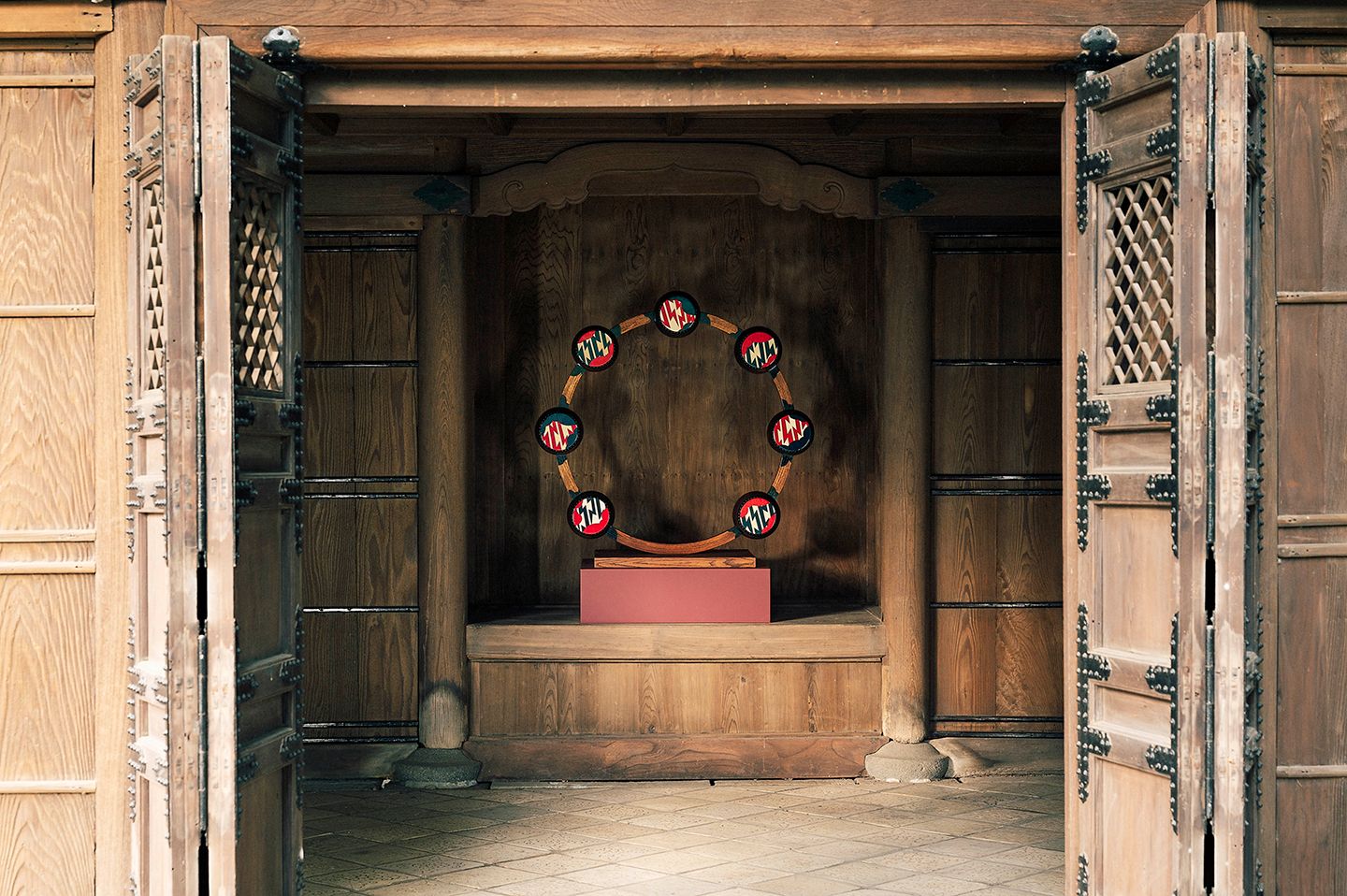
Exhibition view of last year’s Edo Tokyo Rethink Exhibition
These exhibition photos show the exhibition view of the “Edo Tokyo Rethink Exhibition” held in 2023 at the Koishikawa Korakuen Garden. The works are a collaboration between Noritaka Tatehana, a contemporary artist, and traditional craft workshops selected for the Edo-Tokyo Kirari Project.
Please click on the link below to view past exhibitions.
https://edotokyokirari.jp/exhibition/
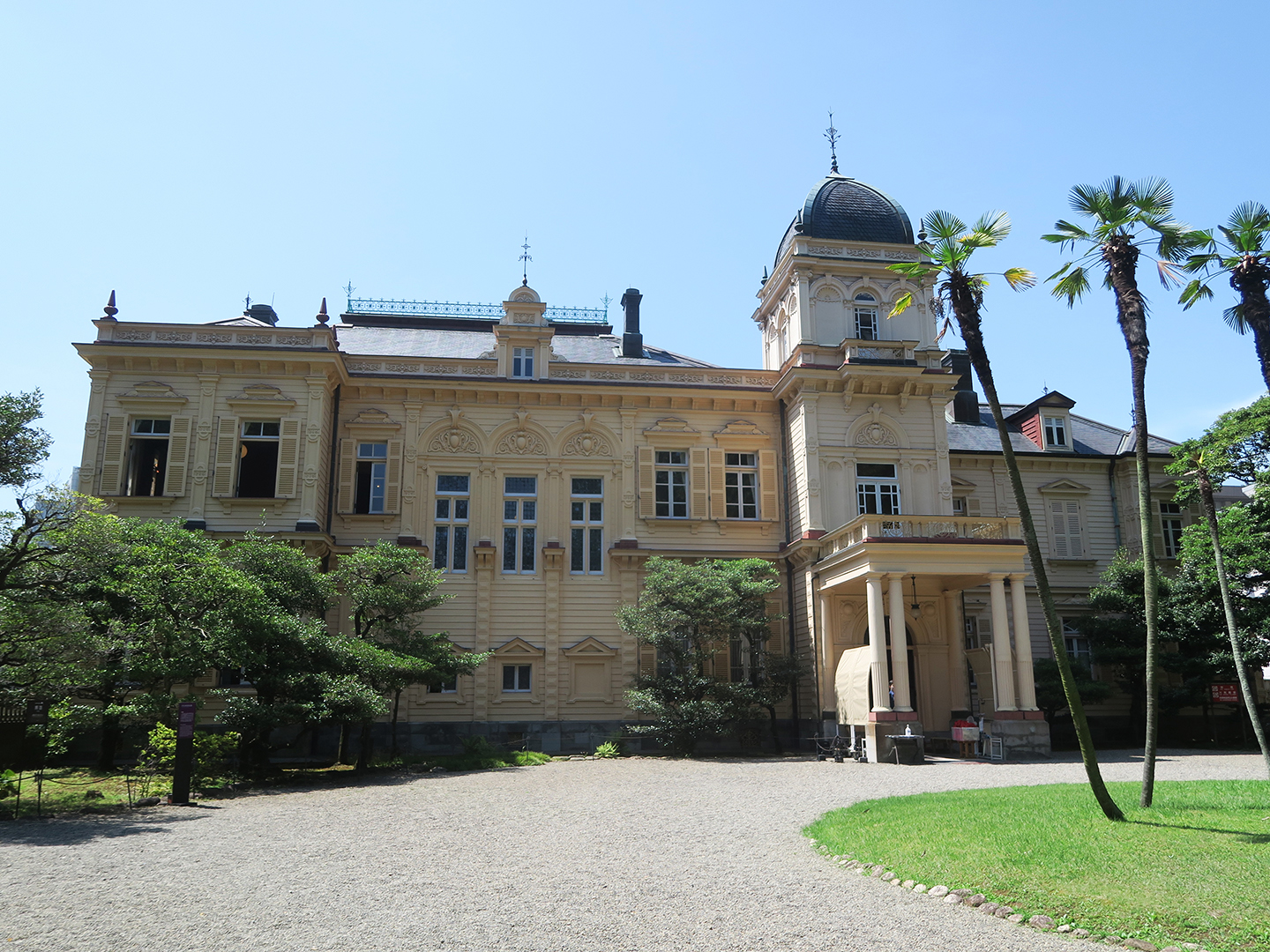
Important Cultural Property Kyu-Iwasaki-tei Gardens
Kyu-Iwasaki-tei Gardens was built in 1896 as the main residence of Iwasaki Hisaya, the 3rd president of Mitsubishi and the eldest son of Iwasaki Yataro, the founder of the group. In those days, as many as 20 buildings were arranged in the premises of 15,000 tsubo. At present, the site has been reduced to 1/3 of its original size, with only 3 buildings, namely the western-style residence, billiard room and Japanese residence have survived to date. After the war, this place was requisitioned by the GHQ and subsequent to its return, it became a national property to be used as the Legal Training and Research Institute of the Supreme Court, etc. In 1961, the western residence and the billiard room were designated as nationally important cultural property. Further, in 1969, the hall of the Japanese residence and the side wall (sode-bei) to the east side of the western residence were designated additionally, followed by the premises as a whole including the wall as well as the measured drawing in 1999.
Official Website
https://www.tokyo-park.or.jp/park/format/index035.html
Exhibition Outline
Title: Edo Tokyo Rethink −Fusion of Takumi Craftsmanship and Contemporary Art Perceived at the Kyu-Iwasaki-tei Gardens−
Date and Time: Friday, March 1, 2024 ~ Sunday, March 10, 2024, 9:00 a.m. ~ 5:00 p.m. (entry closed at 16:30)
Organizers: Tokyo Metropolitan Government / Edo Tokyo Kirari Project
Venue: Kyu-Iwasaki-tei Gardens( (1-3-45, Ikenohata, Taito-ku, Tokyo)
Admission: The following fees are required to enter the Kyu-Iwasaki-tei Gardens.
General admission: 400 yen, 65 years old and over: 200 yen
*Elementary school students or under, and junior high students residing in Tokyo are admitted free.
*Holders of one of the following and their attendants are admitted free: identification booklet for the physically handicapped, Ai-no-techo (for the mentally handicapped), mental disability certificate, or mental education and treatment certificate.
Exhibitor
Edo Uchiwa / Edo Sensu Ibasen
Edo Hake / Tokyo Teue Brush Uno Brush
Edo Kumiko Tatematsu
Shin Edozome Marukyu Shoten
Wadaiko Miyamoto Unosuke Shoten
Tokyo Kumihimo Ryukobo
Kinkarakawashi Kinkarakami Institute (Special Cooperation)
Workshops by Historical Traditional Industries
During the exhibition period, workshops will be held to experience the traditional culture of Edo Tokyo.
Applications will be accepted on the official website of the Kyu-Iwasaki-tei Gardens starting at 2:00 p.m. on February 7 (Wed.).
*Applications will be accepted on a first-come, first-served basis.
Kyu-Iwasaki-tei Gardens Official website
https://www.tokyo-park.or.jp/park/format/index035.html
(1) Yubi-kumihimo Workshop
Schedule: March 2, 2024 (Sat.) Capacity of 8 people per session
Time: 1st 9:30-10:30 / 2nd 10:45-11:45 / 3rd 13:00-14:00 / 4th 14:30-15:30
Participation fee: 3,000 yen (not including park entrance fee)
Traditional industry in charge: Ryukobo (Tokyo Kumihimo)
*This program is for junior high school students and older.
(2) Workshop for Making Kumiko Coasters
Schedule: March 3, 2024 (Sun.) Capacity of 18 people per workshop
Time: First session: 10:00 – 11:30 / Second session: 13:00 – 14:30
Participation fee: 3,000 yen (not including park entrance fee)
Traditional industry in charge: Tatematsu (Edo Kumiko)
*This program is for junior high school students and older.
(3)Tripling Workshop of Japanese Sweets, Sake, and Sake Utensils
Schedule: March 9, 2024 (Saturday) Capacity of 25 people per workshop
Time: 1st session 13:00-14:00 / 2nd session 15:00-16:00
Participation fee: 3,000 yen (admission fee not included)
Traditional industry in charge: Eitaro Sohonpo (Edo Kashi), Kimoto Glass Tokyo (Edo Kiriko and Edo Glass), Toshimaya (Japanese Sake)
*This program is for those who are 20 years old or older. Driving under the influence of alcohol or driving under the influence of alcohol is prohibited by law. Visiting the park by car, motorcycle, or bicycle is strictly prohibited.
*This workshop has a deadline for applications, please check the application page for details.
Sales of products related to the Edo Tokyo Kirari Project at the Kyu-Iwasaki-tei Gardens Shop
In conjunction with the “Edo Tokyo Rethink Exhibition,” products related to the Edo Tokyo Kirari Project will be sold at the Kyu-Iwasaki-tei Gardens Shop to help visitors understand the background and culture of the Edo and Meiji periods, when the Tokyo Metropolitan Gardens were built, and to introduce the project.
Photo by GION


